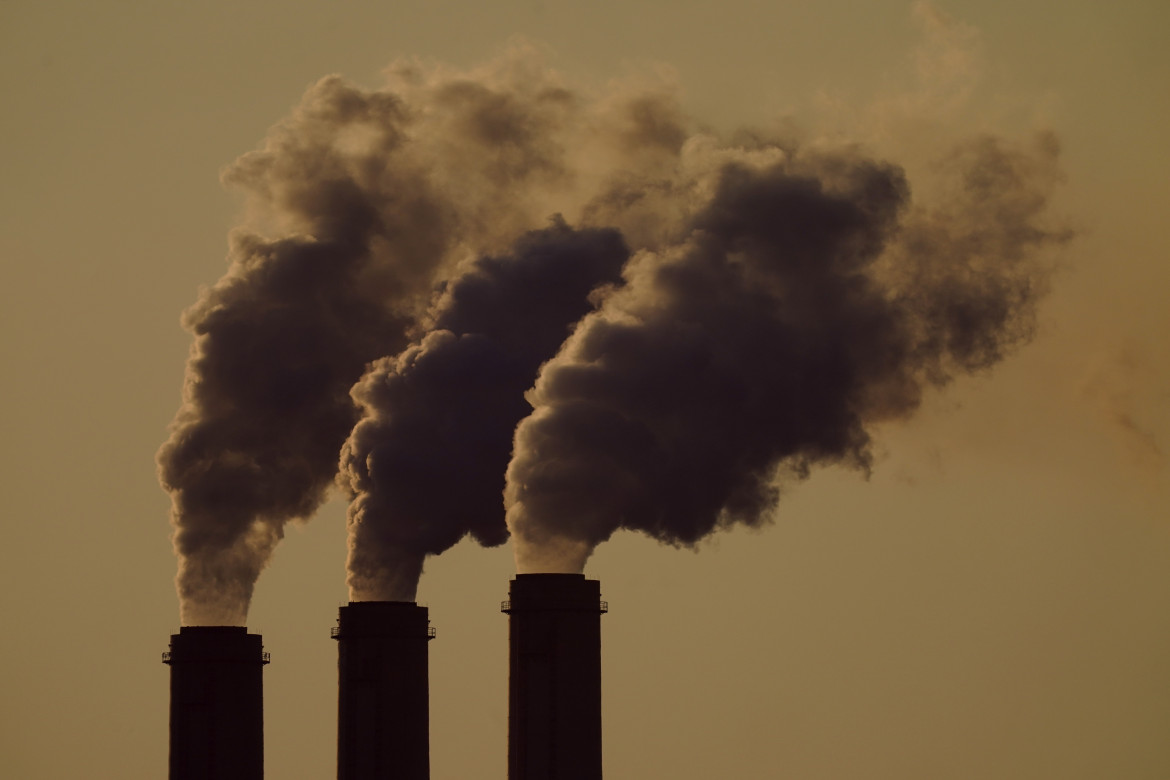Report
‘Climate leaks’: Governments and companies try to influence climate documents
Documents leaked to the Greenpeace organization Unearthed show that rich countries have attempted to downplay the conclusions of the latest IPCC report. One Australian official even suggested closing coal plants was unnecessary.

Leaked documents analyzed by Unearthed, Greenpeace UK’s investigative platform, show how a group of countries is trying to influence and change the latest report from the Intergovernmental Panel on Climate Change (IPCC). The leaked documents cover more than 32,000 comments made by governments to the team of scientists compiling the IPCC report.
In particular, the leak shows that a number of countries and companies are arguing that there is no need to reduce fossil fuel use as quickly as the report recommends. According to Unearthed, the documents reveal that Saudi Arabia, Japan and Australia are among the countries asking the IPCC to downplay the need to move away from fossil fuels quickly.
This is not the first time that some countries, particularly major coal and oil producers, have attempted to influence IPCC reports. In 1995, the IPCC released its second report, which, like its predecessor, drew attacks from climate deniers—among them, fossil fuel companies and lobbyists. The denialists’ attack, in this case, was directed at Benjamin Santer, author of the report’s eighth chapter, which dealt with the causes that climate change can be attributed to. Santer’s conclusions were rejected by the Saudi and Kuwaiti delegates, not surprisingly representatives of rich oil states.
More than 25 years have passed and some countries have not changed their approach. According to the documents analyzed, an adviser to the Saudi oil ministry is asking that phrases such as “need for urgent and accelerated mitigation actions at all scales.” The country is also asking scientists to delete the conclusion that “the focus of decarbonisation efforts in the energy systems sector needs to be on rapidly shifting to zero-carbon sources and actively phasing out all fossil fuels.”
Furthermore, a senior Australian government official opposed the conclusion that closing coal-fired power plants was necessary, even though ending coal use is one of the stated goals of COP26.
Saudi Arabia is the world’s largest oil exporter, and Australia is a major coal exporter. Historically, the country has had denialist politicians in government who have resisted the transition and acted for coal lobby interests. The documents also show that Australia is asking IPCC scientists to delete a reference to the role of fossil fuel lobbyists in delaying climate action in Australia and the United States. According to Unearthed, OPEC is also asking the authors to delete a number of references to fossil fuel lobbyists obstructing climate action.
According to BBC News, the leaked documents show “lobbying” by some nations that could spell trouble ahead of COP26 in November. This includes calls for changes to the IPCC’s position on technologies such as carbon capture and storage (CCS) by Saudi Arabia, China, Australia, Japan, Norway and OPEC. The report accepts that CCS could play a role in the future, as “CCS may be needed to mitigate emissions from the remaining fossil fuels that cannot be decarbonised, but the economic feasibility of deployment is not yet clear,” and there is great ambiguity in the extent to which using fossil fuels with CCS would be compatible with the 2 degrees and 1.5 degrees Celsius targets as set by the Paris Agreement.
Another aspect revealed by the leaked documents concerns meat production. Brazil and Argentina, two of the largest producers of meat products and intensive livestock crops, are taking issue with the report’s evidence that reducing meat consumption is necessary to reduce greenhouse gas emissions. In particular, according to Unearthed, Brazil—where deforestation in the Amazon under Bolsonaro is steadily increasing, with very serious consequences for ecosystems and the indigenous people who inhabit those lands—“has tried to prevent the IPCC making direct links between meat consumption and global warming in its landmark mitigation report.”
Unearthed’s analysis found that most of the countries’ contributions were constructive comments aimed at improving the IPCC text, but also that the leaking of these documents “offers a unique insight into the positions being adopted by some nations away from the public eye.” The IPCC maintains that comments from governments are central to its scientific review process and that not only are its authors under no obligation to incorporate them into reports, but that all comments are judged solely on the basis of scientific evidence, regardless of where they come from.
Originally published at https://ilmanifesto.it/climate-leaks-governi-e-aziende-provano-a-influenzare-i-documenti-sul-clima/ on 2021-10-22
